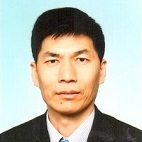Keynote Speaker I
 Prof. Youmin Zhang, Concordia University, Canada Prof. Youmin Zhang, Concordia University, Canada
Fellow IEEE, Fellow CSME
Biography: Youmin Zhang (Fellow, IEEE) received the B.S., M.S., and Ph.D. degrees in automatic control from Northwestern Polytechnical University, Xi’an, China, in 1983, 1986, and 1995, respectively.,He is currently a Professor with the Department of Mechanical, Industrial and Aerospace Engineering and the Concordia Institute of Aerospace Design and Innovation, Concordia University, Montreal, QC, Canada. He has authored eight books and more than 550 journal and conference papers. His current research interests include guidance, navigation, and control, fault detection and diagnosis, fault-tolerant control, and remote sensing with applications to unmanned aerial/space/ground/marine vehicles, smart grids, smart cities, and cyber–physical systems.,Dr. Zhang was the President of International Society of Intelligent Unmanned Systems from 2019 to 2022. He is an Editorial Board Member, a Deputy Editor-in-Chief, an Editor/Associate Editor of several international journals, including IEEE Transactions on Neural Networks and Learning Systems, IEEE Transactions on Industrial Electronics, IEEE Transactions on Circuits and Systems—Part II: Express Briefs, Journal of Intelligent and Robotic Systems, Unmanned Systems, Guidance, Navigation and Control, and Security and Safety. He has served as the honorary general chair, the general chair, the program chair, and an IPC member for several unmanned systems and renewable energies relevant international conferences. He is a Registered Professional Engineer in Ontario, Canada, a Fellow of CSME, a Senior Member of AIAA, and a member of technical committees for several scientific societies.
|
Keynote Speaker II
 Prof. Youfu Li, City University of Hong Kong, China Prof. Youfu Li, City University of Hong Kong, China
Fellow IEEE
Biography: Prof. Li received the B.S. and M.S. degrees in electrical engineering from Harbin Institute of Technology China. He obtained the PhD degree from the Robotics Research Group, Dept of Engineering Science of the University of Oxford in 1993. From 1993 to 1995 he was a postdoctoral research staff in the Dept of Computer Science, University of Wales, Aberystwyth, UK. He joined City University of Hong Kong in 1995 and is currently a professor in the Department of Mechanical Engineering. His research interests include robot sensing, robot vision, 3D vision, visual tracking, sensor guided manipulation, mechatronics and automation. In these areas, he has published over 180 papers in SCI listed international journals. Dr Li has received many awards in robot sensing and vision including IEEE Sensors Journal Best Paper Award by IEEE Sensors Council, Second Prize of Natural Science Research Award by the Ministry of Education, 1st Prize of Natural Science Research Award of Hubei Province, 1st Prize of Natural Science Research Award of Zhejiang Province, China. He was on Top 2% of the world’s most highly cited scientists by Stanford University, 2020. He has served as an Associate Editor of IEEE Transactions on Automation Science and Engineering (T-ASE), Associate Editor of IEEE Robotics and Automation Magazine (RAM), Editor of the IEEE Robotics Automation Society's Conference Editorial Board (CEB) and Guest Editor of IEEE Robotics and Automation Magazine (RAM). He is a fellow of IEEE.
|